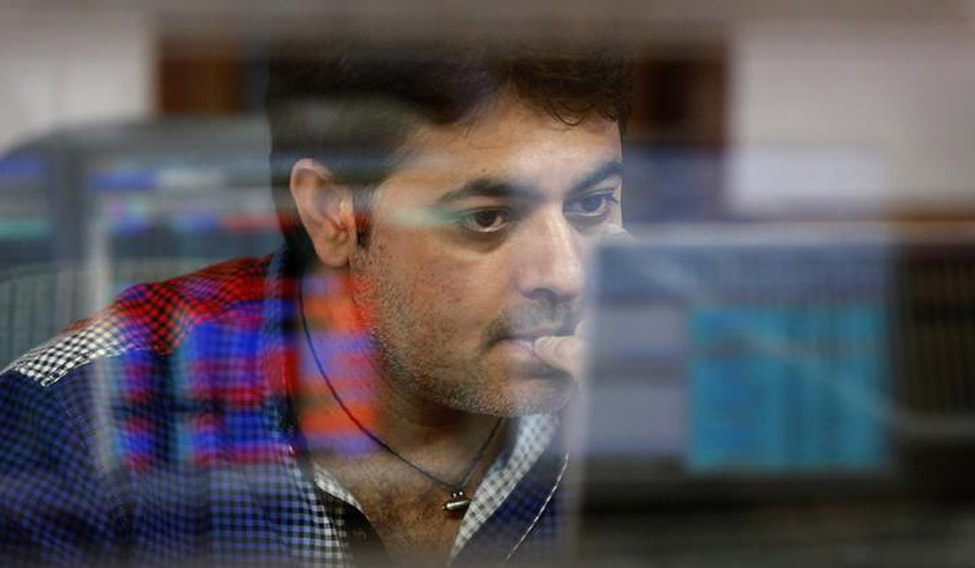India's benchmark stock indices plunged around 1.5 per cent on Sept 22, the BSE Sensex declined almost 450 points, amid growing worries over the state of the economy and concerns that any stimulus to energise growth would have an adverse impact on the country's fiscal deficit.
Market mood had also remained subdued, tracking nervousness across many Asian markets, after North Korea threatened to test a hydrogen bomb in the Pacific Ocean, a day after US President Donald Trump expanded sanctions on the country.
The BSE Sensex closed 448 points or 1.4 per cent lower at 31,922.44 and the wider NSE Nifty50 index tumbled 158 points or 1.6 per cent to 9,964.40. It was the steepest fall for the equity markets since November 2016, when the Narendra Modi government's announcement banning high value currency notes had shaken the market.
For the week, the Sensex was down by 1.1 per cent, while the Nifty50 declined by 1.2 per cent.
“Economic growth remains a major concern for investors. The Rupee also fell today. The current account deficit has risen and fiscal deficit also remains a worry,” said Rakesh Tarway, head of research at Reliance Securities.
India's GDP growth had slipped to 5.7 per cent in the April-June quarter and according to news agencies quoting unnamed officials, the government is considering a plan to loosen its fiscal deficit target, which will enable it to spend as much as Rs 50,000 crore to halt the economic slowdown.
On Sept 22, Finance Minister Arun Jaitley said that the government will make efforts to find resources to support banks stressed with huge non-performing assets, and help them fund the economic growth.
India's fiscal deficit had already touched 92.4 per cent of budgeted estimates at the end of July. For the financial year ending March 31, 2018, the government had set a fiscal deficit target of 3.2 per cent of GDP. However, if the government does go ahead with the extra spending, it could widen to 3.7 per cent of GDP.
Economic concerns apart, several analysts have in the recent past flagged rising valuations of India's capital markets.
Concerned over the valuations, economic and rising geopolitical tensions, foreign institutional investors (FII) sold net equity worth Rs 12,770 crore in August and have further sold Rs 5,492 crore worth stocks so far in September, even as domestic mutual funds have been net buyers on the back of robust retail investment flows via systematic investment plans.
On Sept 22, Tata Steel was the biggest loser, declining by 4.7 per cent on the BSE. The stock had risen over the last few sessions, after announcing a 50-50 joint venture with Germany's Thyssenkrupp for its European steel operations.
Other metal stocks also fell sharply as global metal prices plunged in the wake of escalating tensions between US and North Korea, and S&P downgrading China's credit rating.
Banking stocks were also among the major losers, with ICICI Bank and State Bank of India declining by around 2.5 per cent and Kotak Mahindra Bank, Axis Bank also falling by 1 per cent and 1.6 per cent respectively.
Auto, capital goods and pharma stocks were also among the major losers on Sept 22.
The benchmark Nifty50 has been range-bound over the past few weeks and is likely to remain so in the near-term unless there were any positive developments on the economic front, said Tarway. The other trigger will also be the quarterly earnings, which will kick off from the second week of October.



